Introduction
Today, students get access to various computer applications for their course activities. Some of them are Microsoft Word, Excel, PowerPoint, OneNote, and Google Docs. Each program has its advantages and disadvantages, addressing the basic needs of users and developers. People are usually free to choose the most convenient applications and complete their routine tasks. I prefer Microsoft Word as the major office-based environment for my current and upcoming course activities. Microsoft Word is a part of the Microsoft Office Group that productively creates formal and informal documents (Simon, 2021). I have been using this program for a long period, and my reasons for selecting this environment are based on my skills and knowledge. It does not take much time to install Microsoft Word and enjoy its simplicity, multiple opportunities, and facilitated accessibility.
Simplicity
One of the first explanations for why I pay attention to Microsoft Word as a regular computer application for studies is its simplicity. It does not mean there are simple commands and tasks, but this program is characterized by clear rules and steps (van Rensburg, 2020). As shown in Figure 1, the tag is easily recognizable. When the necessary software is installed, it is easy to find and use the application. Figure 2 demonstrates a home page of the application and the possibility of choosing files for opening. There are no complex issues, and it does not take much effort to find the required document.
Opportunities
Another reason for using Microsoft Word for my academic activities is related to the number of available opportunities. As soon as a new document is created, users can choose the font type, size, style, colors, and other text properties necessary for writing (as shown in Figure 3). Adding bullet points, numbers, text direction, line spacing, and levels is easy. When the work is done, a student can save the material and add any name that helps to recognize a document on a desktop or the home panel of the application (see Figure 4 and Figure 5). There are clear buttons “Save” or “Save As” for these purposes.
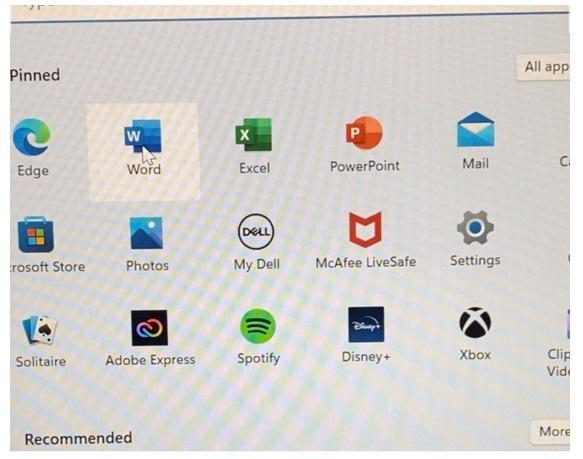
Accessibility
A final benefit of Microsoft Word is its accessibility and the possibility of working with other formats and applications. There are situations when documents are available in different formats that cannot be read due to the absence of the necessary software. Students may convert files and use Word documents by default. Regarding regular updates and improvements, the most recent versions are usually available online, with all changes being reviewed and explained (van Rensburg, 2020). I like the idea that I am responsible for choosing editions for my work because not all operating systems can accept the shifts in the applications and work properly. Therefore, my control over Microsoft Word is the benefit I personally enjoy as a user.
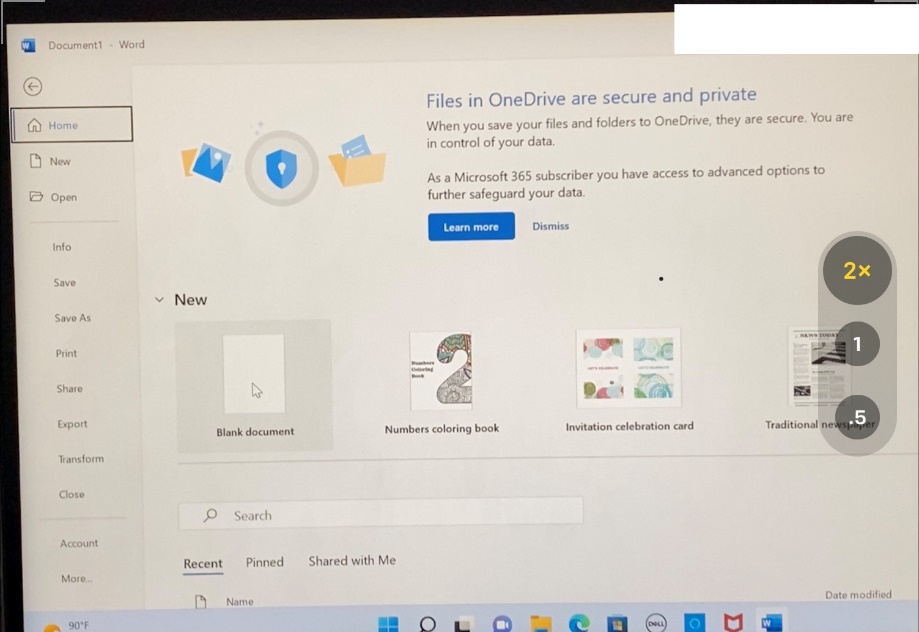
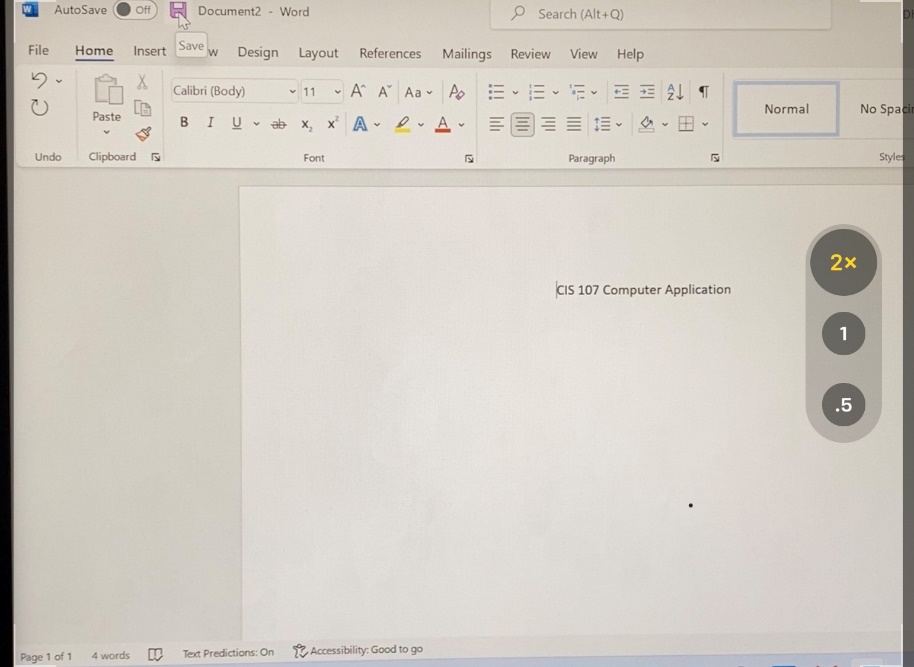
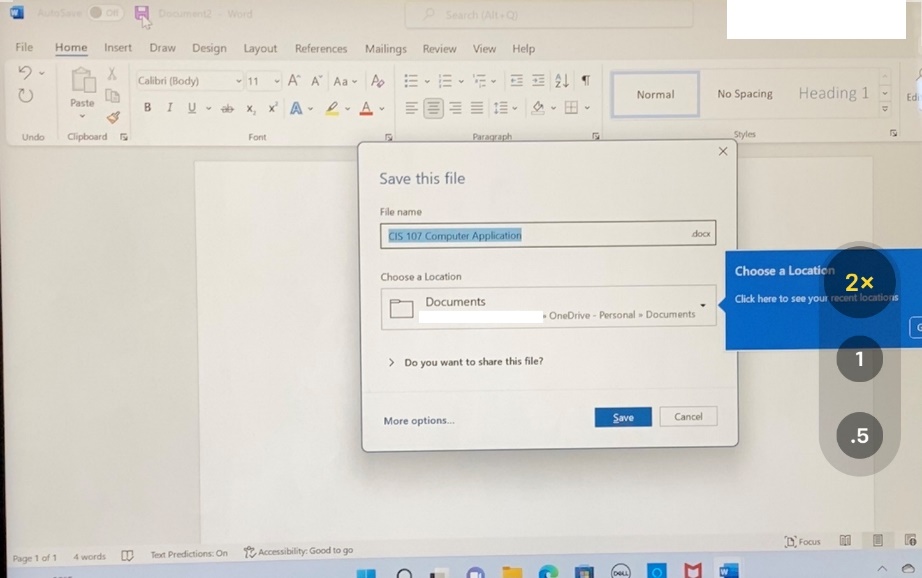
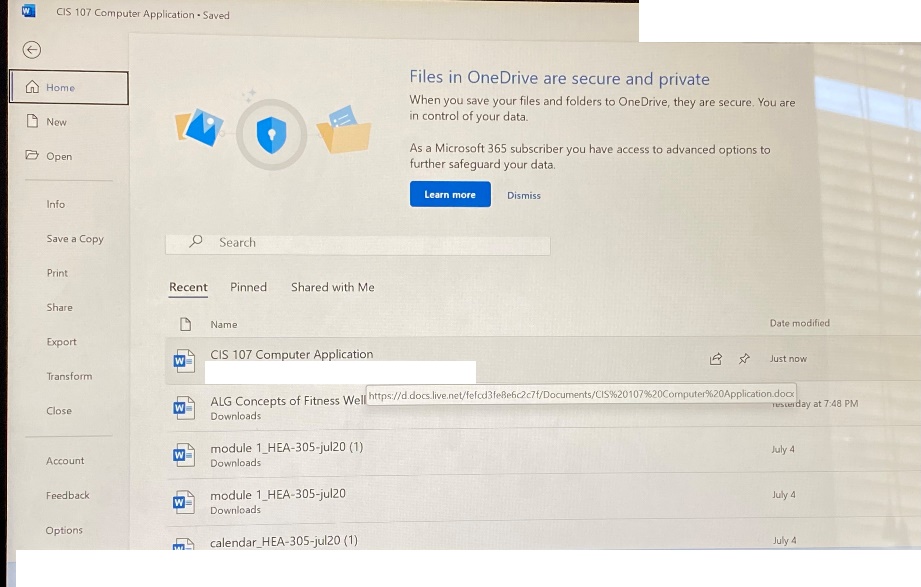
Conclusion
In general, I want to believe that my knowledge and skills in using Microsoft Word as the chosen office-based environment for course activities should be enough. I like that this application is simple to use, and there is no need to deal with installation activities once the program is on the computer. In addition, Word is full of various opportunities and interesting approaches to writing, printing, and inserting images or other illustrative material. Its accessibility allows me to convert files in other formats to the preferred option. I am able to demonstrate my creative thinking if necessary or follow the format requirements defined by academic facilities.
References
Simon. (2021). Advantages and disadvantages of Microsoft Word. TurboFuture. Web.
van Rensburg. R. (2020). What is Microsoft Word used for in the workplace? Here’s 5 ways. Coggno. Web.